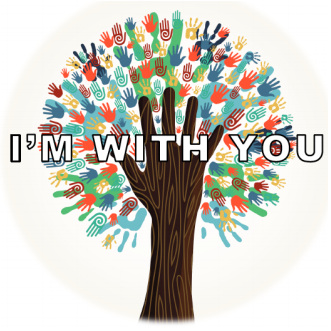As many of you know, in addition to my blogging, I am also the Chair of the Washtenaw County Democratic Party. Washtenaw County, which is the home of Eastern Michigan University in Ypsilanti and University of Michigan in Ann Arbor, is a bit of a progressive bubble. In terms of local elections, our primaries are most often where the real contests are and our high density of Democrats can help with statewide races and races outside of the greater Ann Arbor are itself.
In this year’s general election, Washtenaw County accomplished two quite remarkable things. First, we had the highest percentage of votes for Hillary Clinton than any other county. 68.34% of Washtenaw voters voted for her. The next closest county was Wayne (where Detroit is) with 66.8%, followed by Ingham at 60.51%.
Not only that, Washtenaw County was the only county out of the 83 in Michigan to actually INCREASE Democratic turnout from 2012.
We’re sorta overachievers when it comes to elections.
But there’s something else going on here that is worth looking at and, even more importantly, worth emulating in other places where’s it not happening. In Washtenaw County there is a concerted and overt voicing of support for the communities of people who stand to lose the most in the Trump area, communities who are most likely to be negatively impacted, in some cases severely so.
Yesterday, over 70 Washtenaw Elected Officials issued a statement intended to stand with all people of Washtenaw County, pledging to do everything in their power to ensure that Washtenaw County is a safe and welcoming community for everyone.
We, the undersigned Elected Officials of Washtenaw County, stand together against hate. We stand with everyone in Washtenaw County, in solidarity with the many diverse identities we all hold. While the following enumeration may not capture every group in our community, we stand in opposition to any hateful words or acts aimed against any and all peoples of our community regardless of the political views they hold.
We stand with American Indian people of Washtenaw County.
We stand with Arab, Middle Eastern and North African people of Washtenaw County.
We stand with Asian people of Washtenaw County.
We stand with Black people of Washtenaw County.
We stand with Latinx people of Washtenaw County.
We stand with Immigrant and Refugee people of Washtenaw County.
We stand with LGBTQ+ people of Washtenaw County.
We stand with Muslims, Jews and people of all religions of Washtenaw County.
We stand with People with Disabilities of Washtenaw County.
We stand with Survivors of Sexual Assault of Washtenaw County.
We stand with Veterans of Washtenaw County.
We stand with Women and Girls of Washtenaw County.
We pledge to use every power vested in our respective offices to protect the safety and dignity of everyone in this community. We pledge to engage, empower and listen to those who are most vulnerable.
We pledge to do everything in our power to defend this community against any policies, actions, or statements that discriminate against or target any individual or group.
We pledge to do everything in our power to ensure that Washtenaw County is a safe and welcoming community for everyone.
We pledge to stand united.
You can read the full list of signatories HERE.
If your organization is in Washtenaw, sign on by emailing signonwashtenaw@gmail.com.
Another effort bring spearheaded by Missy Stults of Ann Arbor is the printing and posting of these signs:
Click the image for a printable sign you can post in your own home or vehicle.
Missy is also giving away free buttons with this image on them:

If you’d like one of these buttons, click HERE.
These sorts of statements, along with things like the wearing of safety pins, are important. They are first steps in showing solidarity with impacted communities and showing them that they are not alone in their fight. However, as I talked about in this week’s podcast, they are only the first steps.
There are several types of solidarity:
Verbal solidarity is the issuing of statements and the display of support. The signs and statements described above are an example of verbal solidarity.
The next level is transactional solidarity. This is where groups are willing to be supportive in exchange for receiving support from the other party. An example of this might be a Democratic Party being willing to support some specific group in exchange for their support come Election Day. It is, in a sense, coalition building.
More impactful than that is manifested solidarity where an individual is willing to put themselves at risk in support of impacted communities. They may, for example, attend protests where they risk being maced or arrested. They might put themselves in harm’s way when shutting down a highway. Manifested solidarity takes those with privilege and advantage out of their comfort and safety zones and puts them side-by-side with the people and groups they are advocating for.
Finally, there is transformational solidarity. With transformational solidarity, entire communities sacrifice on behalf of those who need them. An example of this is a city willing to risk state or federal funding to become a “sanctuary city” that refuses to cooperate with immigration officials seeking to deport undocumented immigrants. This is much larger scale than manifested solidarity and the most impactful support possible.
Our challenge as progressives in America in the coming weeks, months, and years will be to find what level of solidarity we as individuals and as communities, as well, are willing to provide. As I said in the podcast, the time for simply signing petitions and writing checks as our only “activism” are over. It’s time for progressives to show up and make a difference. Actions like those being taken Washtenaw County are very important and essential first steps. But, they must be the first steps to be followed by many more.




